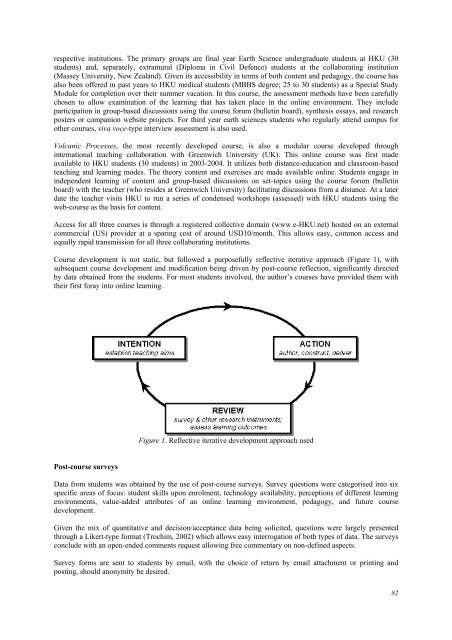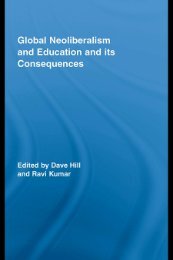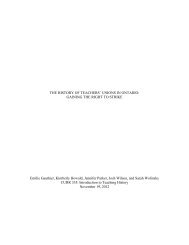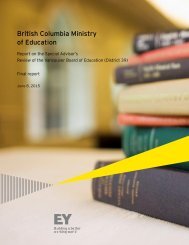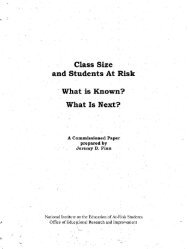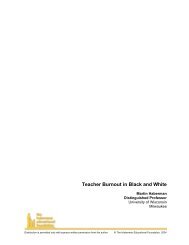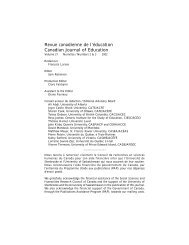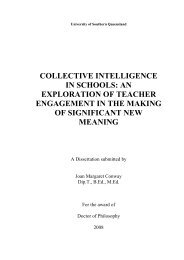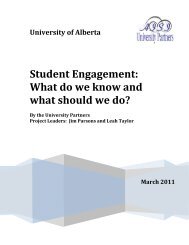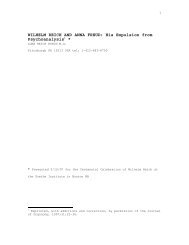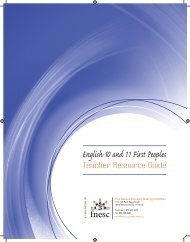October 2006 Volume 9 Number 4
October 2006 Volume 9 Number 4
October 2006 Volume 9 Number 4
You also want an ePaper? Increase the reach of your titles
YUMPU automatically turns print PDFs into web optimized ePapers that Google loves.
espective institutions. The primary groups are final year Earth Science undergraduate students at HKU (30<br />
students) and, separately, extramural (Diploma in Civil Defence) students at the collaborating institution<br />
(Massey University, New Zealand). Given its accessibility in terms of both content and pedagogy, the course has<br />
also been offered in past years to HKU medical students (MBBS degree; 25 to 30 students) as a Special Study<br />
Module for completion over their summer vacation. In this course, the assessment methods have been carefully<br />
chosen to allow examination of the learning that has taken place in the online environment. They include<br />
participation in group-based discussions using the course forum (bulletin board), synthesis essays, and research<br />
posters or companion website projects. For third year earth sciences students who regularly attend campus for<br />
other courses, viva voce-type interview assessment is also used.<br />
Volcanic Processes, the most recently developed course, is also a modular course developed through<br />
international teaching collaboration with Greenwich University (UK). This online course was first made<br />
available to HKU students (30 students) in 2003-2004. It utilizes both distance-education and classroom-based<br />
teaching and learning modes. The theory content and exercises are made available online. Students engage in<br />
independent learning of content and group-based discussions on set-topics using the course forum (bulletin<br />
board) with the teacher (who resides at Greenwich University) facilitating discussions from a distance. At a later<br />
date the teacher visits HKU to run a series of condensed workshops (assessed) with HKU students using the<br />
web-course as the basis for content.<br />
Access for all three courses is through a registered collective domain (www.e-HKU.net) hosted on an external<br />
commercial (US) provider at a sparing cost of around USD10/month. This allows easy, common access and<br />
equally rapid transmission for all three collaborating institutions.<br />
Course development is not static, but followed a purposefully reflective iterative approach (Figure 1), with<br />
subsequent course development and modification being driven by post-course reflection, significantly directed<br />
by data obtained from the students. For most students involved, the author’s courses have provided them with<br />
their first foray into online learning.<br />
Post-course surveys<br />
Figure 1. Reflective iterative development approach used<br />
Data from students was obtained by the use of post-course surveys. Survey questions were categorised into six<br />
specific areas of focus: student skills upon enrolment, technology availability, perceptions of different learning<br />
environments, value-added attributes of an online learning environment, pedagogy, and future course<br />
development.<br />
Given the mix of quantitative and decision/acceptance data being solicited, questions were largely presented<br />
through a Likert-type format (Trochim, 2002) which allows easy interrogation of both types of data. The surveys<br />
conclude with an open-ended comments request allowing free commentary on non-defined aspects.<br />
Survey forms are sent to students by email, with the choice of return by email attachment or printing and<br />
posting, should anonymity be desired.<br />
82


